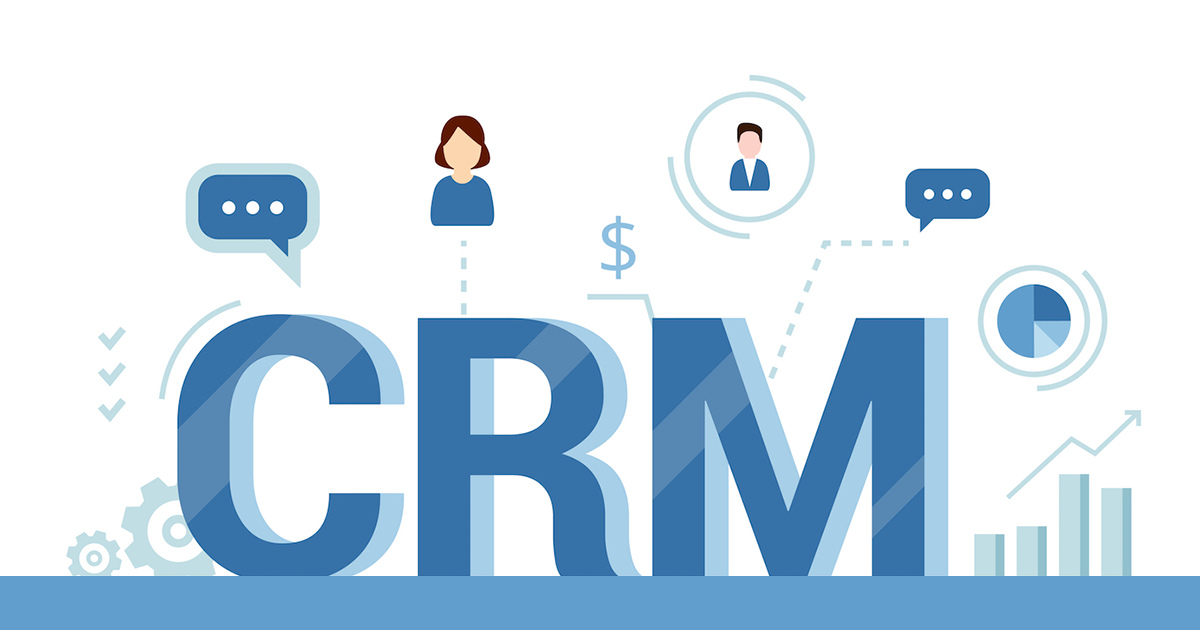CRM (Customer Relationship Management) software is a vital part of every organization today. It enables businesses to use the data they collect every day to better understand their target audience, anticipate their needs, and build profitable relationships through effective customer interactions.
91% of businesses with over 11 employees now use CRM compared to 50% of those with 10 employees or less. One of the key reasons for such a high adoption rate is that CRM provides real-time data with mobile and cloud technologies.

Looking for CRM Software? Check out SoftwareSuggest’s list of the best CRM Software solutions.
And since you are reading this, I’m assuming that you are already using a CRM for your business and know what a CRM dashboard is.
So, without any further ado, let’s understand CRM dashboards from different perspectives and look at the best examples of CRM dashboard usage.
Understanding CRM Dashboards from Different Perspectives
You can create multiple CRM dashboards to better understand your data based on devices, roles, and departments.
1- Web and Mobile Dashboards
More and more businesses are adopting CRM with mobile capabilities to get critical information on the go. Mobile CRM dashboards should be more precise, short, crisp, and effective. Think about what data is the most important for you (e.g., open leads, an overview of campaign performance, and opportunities by stage).
However, when it comes to web CRM dashboards, they can be more detailed, analytical, and comprehensive. Apart from the data in the mobile CRM dashboard, you can add details like leads by source, age of open cases by representatives, and average contract value.
2- Admin and Executive Dashboards
CRM dashboards allow you to set up both admin and executive dashboards. Admins will have complete access to your CRM. They can even set permissions as to who can access the dashboards.
3- Department Wise Dashboards
Each department within your organization would need to see data that’s most relevant to them. For example,
- The sales team wants to see total inquiries, follow-up details, leads at different stages of the sales funnel, product-wise users, etc.
- Marketing teams would be more interested in the number of leads generated, source-wise leads, the conversion rate, return on investment, etc.
- The support team would want to check the number of tickets received, total pending tickets, average tickets per month, etc.
Therefore, it is essential to create department-wise dashboards so everyone in your company can get the most out of the CRM.
4- Team Dashboard
This will enable team leaders and managers to analyze every team’s performance. You can also choose to view the individual performance of each team member in the dashboard.
Note: CRM dashboards are different from reports. Though they both serve the same purpose, reports provide in-depth analytics, while dashboards show an overview of real-time data.
CRM Dashboard Examples
Your CRM dashboard should be different for each department so everyone can see the data that’s most valuable to them.
1- For Sales Team
The sales team will like to stay updated with their activity and how it affects the organization. Here is a CRM dashboard for the sales team.
It includes details like:
- Average contract value
- Average sales cycle length
- Average lead response rate
- Sales activity by type (call, preparation, email, lead research, etc.)
- Follow-up contact rate
- Top 5 deals (including sales representative name and sales cycle length)

Here is another example of a sales CRM dashboard. It includes details like:
- Accounts by type (customer, prospect, supplier, and suspect)
- Sales target achievement
- New leads by month
- Opportunities won by close month
- Sales funnel
- Opportunity and forecast summary
- Accounts by location
- Sales pie chart – source by quarter
- Sales closed this month
- To-do list

The first example was for managers who want a holistic view of how their sales representatives are performing. However, the second one was more from an individual point of view.
2- For Marketing Team
Marketing teams will want to stay updated about their ad campaigns and how they contribute to the company’s growth.
Here is a CRM dashboard for marketing teams. It includes:
- Google Ads revenue (spend, cost per acquisition, and conversions)
- Facebook Ads (spend, cost per acquisition, and conversions)
- LinkedIn Ads (spend, cost per acquisition, and conversions)
- Bing Ads (spend, cost per acquisition, and conversions)
- Conversions by channel (paid search, paid social, display, organic, etc.)
- Cost per acquisition vs. spend

Here is another example of a CRM dashboard for marketing teams. It includes:
- Marketing database (contacts)
- Cost of marketing campaigns
- Leads by program
- Sales ready leads in the last 18 months
- Marketing contacts by location
- Time for leads to reach State
- Landing page interactions by location
The first example focuses more on paid ads, while the second one provides a holistic view of the marketing efforts.
3- For Customer Support Team
As mentioned above, the customer service team would be more interested in getting a holistic view of their performance. Here is an example of a CRM dashboard for support teams. It includes details like:
- Total number of tickets (Unresolved, overdue, due today, and open)
- Average response time
- Average first response time
- Resolution with SLA (Service Level Agreement)
- Categories of unresolved tickets (customer support, loyalty programs, billing, etc.)
- Customer satisfaction rate

Here is another example of a CRM dashboard for support teams. It includes:
- Ticket statistics in real-time
- New tickets vs. closed tickets
- Source of tickets (web, email, chat, forums, etc.)
- Average tickets reply time
- Happiness ratings

Remember, the most value-driven CRM dashboards include a cohesive mix of visual KPIs that matter the most to your business.
Bonus: Tips to Get the Most Out of CRM Dashboards
Every business is different, and so should be CRM dashboards. However, there are certain best practices that every company must follow while creating a CRM dashboard. Let’s look at them.
1- Align Your Goals and Objectives
What are the key details about your business that you would always want to stay updated with? What KPIs meet your long-term goals?
Depending on your goals and objectives, you would be better able to choose the KPIs for your CRM dashboard.
For example:
If you want to know how effective your team is in lead generation, you could use KPIs like lead generated (by month, quarter, and year), cost per acquisition, leads by campaigns, and lead sources.
However, if you want a better understanding of your customers, you can use KPIs like customers by location, source, and cost per acquisition (by channel).
2- Make Sure It Is Easy To Analyze
The primary reason to use a CRM dashboard is that it provides necessary information quickly. Adding too much information would make it clustered and difficult to analyze vital data.
Therefore, ensure your visuals and KPIs are arranged logically. Also, make sure that the dashboard is scannable and makes it as easy as possible for users to extract information at a glance.
3- Test, Optimize, and Evolve
Creating the perfect CRM dashboard takes time and patience. Plus, it requires you to test different versions to understand what’s best for you. Take time to explore and analyze different CRM dashboard samples and stick to the one that proves effective.
Remember, we live in an age where tools, technology, and people are constantly changing. Therefore, it is essential to optimize your CRM dashboard regularly.
Wrapping Up
CRM dashboards provide a holistic view of your business’s performance. It should contain KPIs that matter the most to your business. You can even take inspiration from the examples mentioned above to get the most out of your CRM dashboard.
Do you have any questions regarding using the CRM dashboard? Let us know in the comments, and we will be happy to answer your concerns. 😀
Need Any Technology Assistance? Call Pursho @ 0731-6725516




